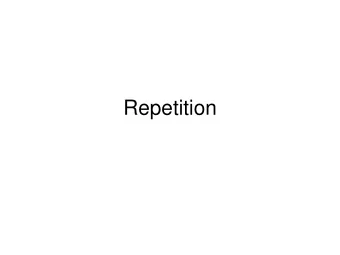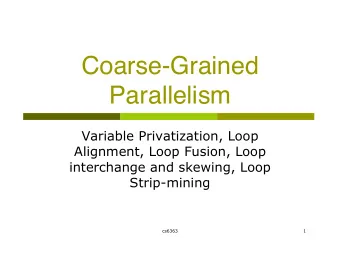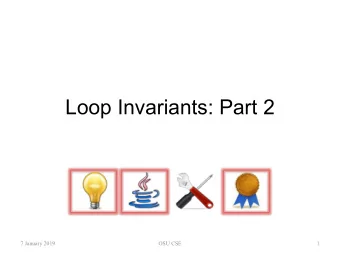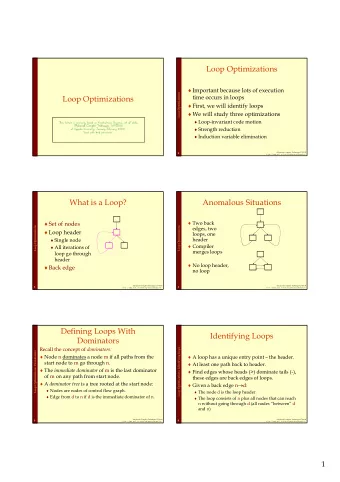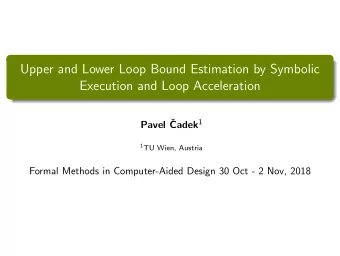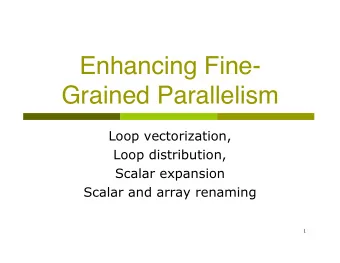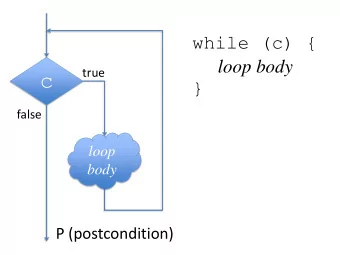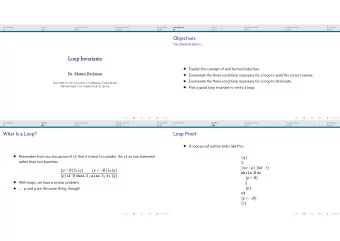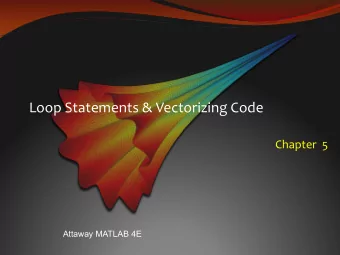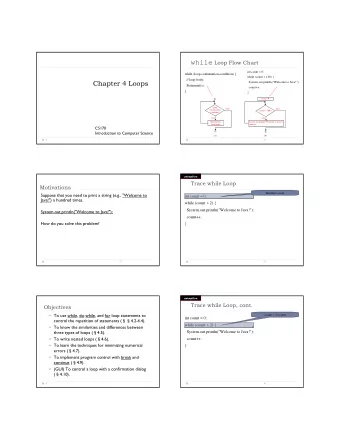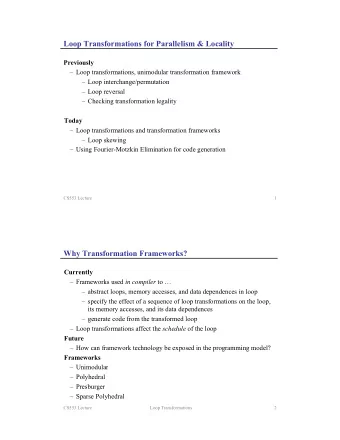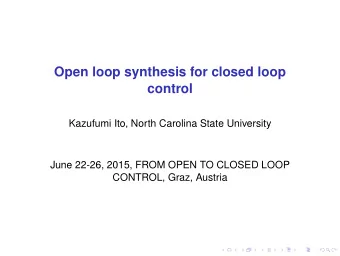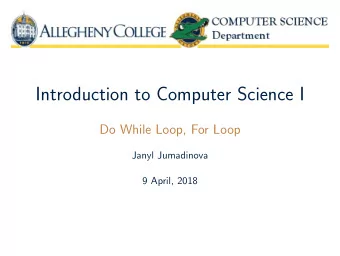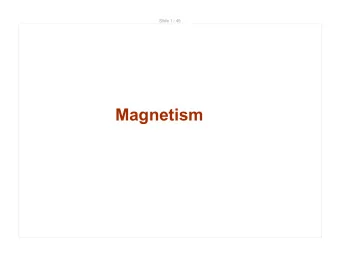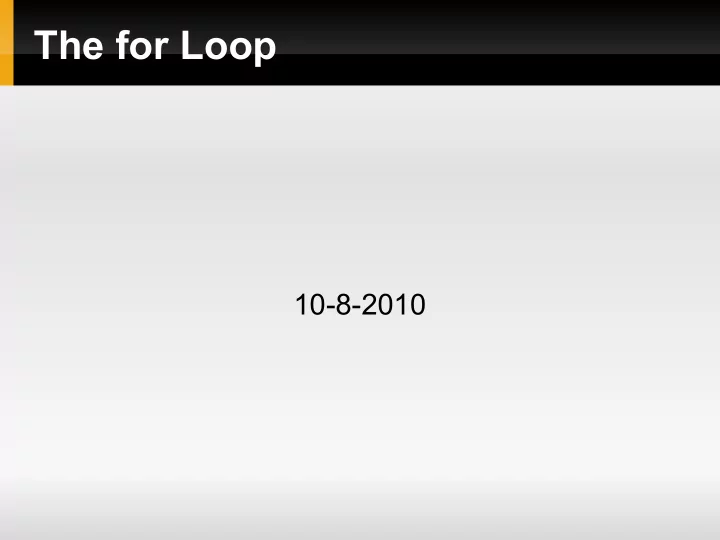
The for Loop 10-8-2010 Opening Discussion Solutions to the - PowerPoint PPT Presentation
The for Loop 10-8-2010 Opening Discussion Solutions to the interclass problem. Minute essay comments: Can you forget about recursion and only use loops? The for Loop The most commonly used loop in most languages is the for loop.
The for Loop 10-8-2010
Opening Discussion Solutions to the interclass problem. Minute essay comments: Can you forget about recursion and only use loops?
The for Loop The most commonly used loop in most languages is the for loop. The Scala version is a bit different from most. Often used for counting: for(i <- 1 to 10) { ... } In general it is a “for each” loop that goes through a collection. for( e <- coll ) { ... } Variable takes on value of each element in the collection.
Range Type Range types provide an easy way to make collections for counting. “to” and “until” operate on numeric types to produce ranges. 1 to 10 0 until 10 Use “by” to change the stepping in a range. 1 to 100 by 2 10 to 1 by -1 'a' to 'z' by 3
yield The for loop can be used as an expression if you put yield between the end of the for and the expression after it. for( e <- coll ) yield expr What you get back will be a collection that is generally of the same type as what you iterated over.
if Guards You can put conditions in the for that will cause some values to be skipped. for(n <- nums; if(n%2==0)) ...
Multiple Generators You can also put multiple generators in a for loop. for(i <- 1 to 10; j <- i to 10) ... You can combine as many generators and guards as you want. You can also declare variables in the middle of the for. The thing you assign into is like a val so it can be a “pattern”. We have only seen this with tuples so far.
Aliasing and Mutability I argue that immutable collections like Lists can be safer than mutable ones like Arrays. One of the big reasons for this is aliasing. An alias in programming is just like in normal life. It is a second name for something. Variables are really references to objects. If a second variable is assigned the same value as the first, they are aliases to that object. Let's play with this and draw on the board.
Aliasing for Argument Passing When you pass arguments, you are really passing references. So arguments in functions are aliases to the objects outside the function If the object is mutable, the function can change it.
Pass-by-Name There is another way to pass things in Scala called pass-by-name. When you pass something by name, it isn't evaluated at the time it is passed. Instead it is turned into a function and that function is evaluated every time the variable is used. The syntax is to put an => before a type, but not have an argument list before the arrow.
Fill and Tabulate There are two other ways of creating collections: fill and tabulate. Both are curried. Second argument to fill is by name, second argument to tabulate is a function. The fill method on Array or List takes a first argument of how many elements. After that is a by-name parameter that gives back the type you want in the array or list. Tabulate also takes a size first. After that is a function that takes the index.
Multidimensional Arrays You can have collections of collections. A common example would be something like Array[Array[Double]] to represent a matrix. Both fill and tabulate can be used to make these. val ident=Array.tabulate(3,3)((i,j) => if(i==j) 1.0 else 0.0)
Views This is an advanced topic, but can be significant for performance. When you map or filter a normal collection, it runs through the whole thing and makes a new collection. Doing a lot of these in a row can be inefficient. A view is a non-strict form of a collection. Doing map or filter doesn't produce a new one. It only does the work when really needed.
Minute Essay Questions? What are things you would like to see us do in the second half of the semester. No IcP because you have a midterm on Monday. We'll have a review session on Sunday in this room at 5pm.
Recommend
More recommend
Explore More Topics
Stay informed with curated content and fresh updates.

